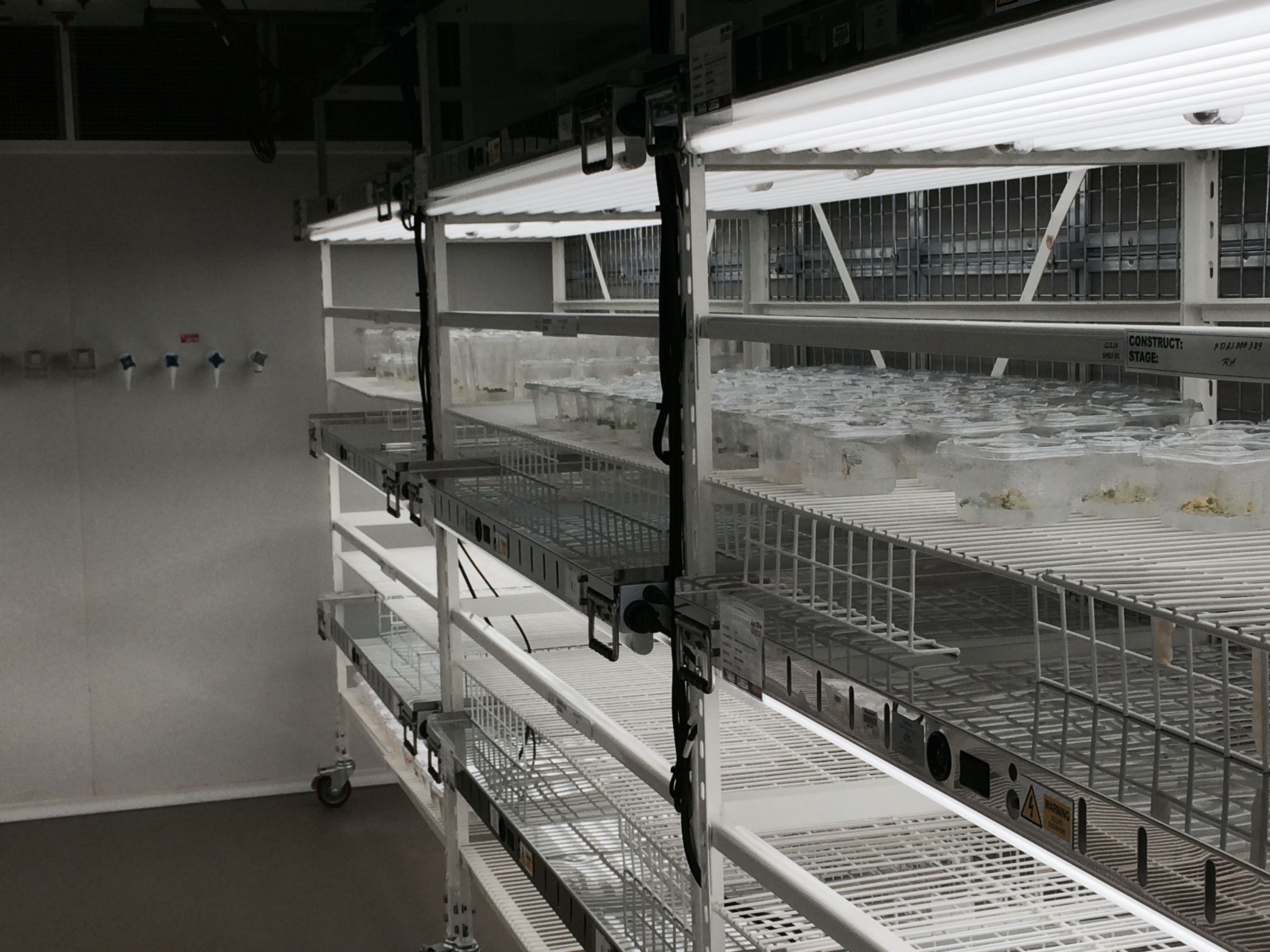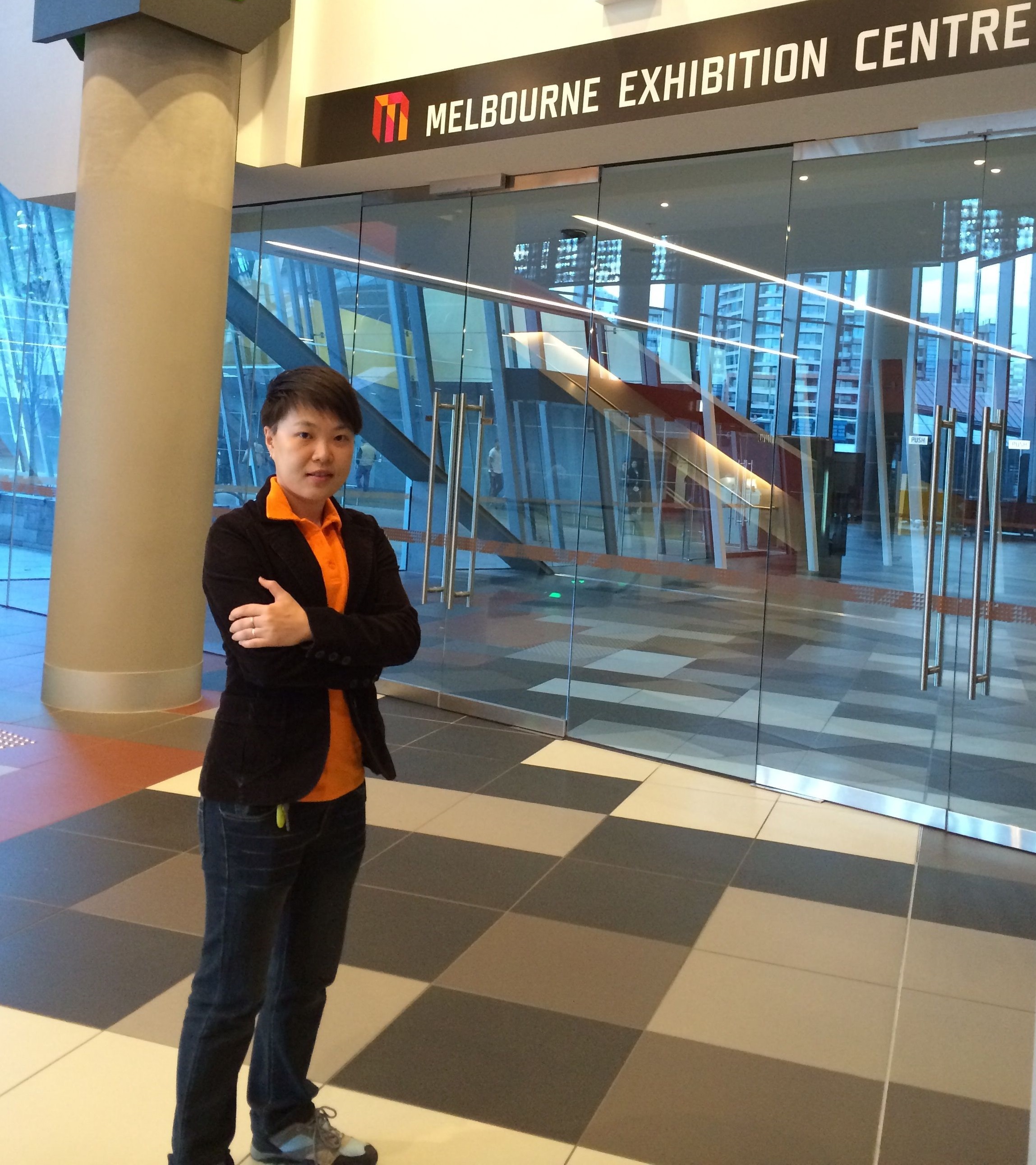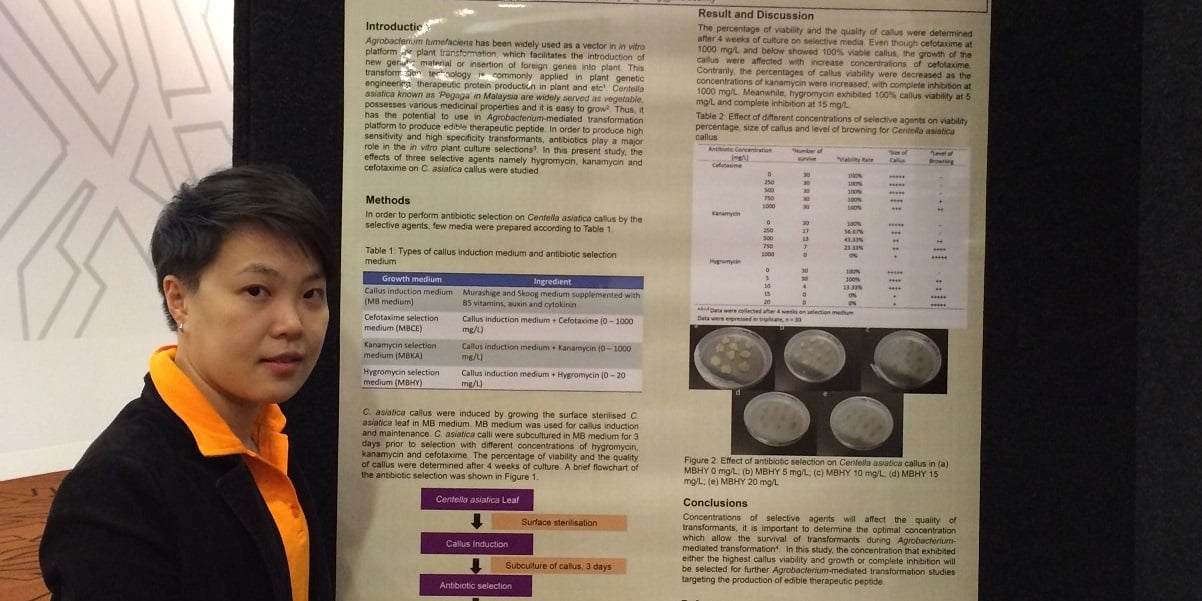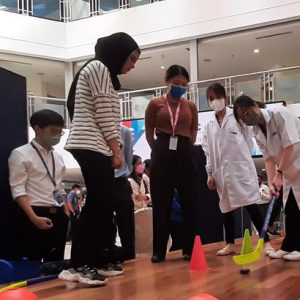August 2014 – International Medical University (IMU) Medical Biotechnology lecturer, Ms Wong Ying Pei presented her research on the ‘Effects of Antibiotics Selective Agents on Plants Cells prior to Agrobacterium Tumefaciens Transformations’ under Biopharma, Bioproduct, and Bioprospecting categories at the International Association for Plant Biotechnology Congress (IAPB) 2014 in Melbourne, Australia. The IAPB conference is held every 4 years with the aim to promote plant biotechnology and to support the goal of advancements in plant biotechnology which benefits mankind.  The research project presented is part of her PhD studies at the University. She is currently pursuing her PhD under the supervision of A/Prof Shar Mariam Mohamed, Dr Anna Ling Pick Kiong and Dr Kenny Voon. Her PhD research project is on the production of edible therapeutic vaccine from medicinal plant. Most of the therapeutic peptide such as vaccines in the market are produced via different platform technologies such as bacteria, yeast, or mammalian cells. However, plants spring up as better factories to generate these therapeutics because plant-made therapeutics are cost effective for mass production, safe to be eaten and more effective. This project is financially funded by ERGS grant in collaboration with Malaysia Nuclear Agency and Universiti Putra Malaysia.
The research project presented is part of her PhD studies at the University. She is currently pursuing her PhD under the supervision of A/Prof Shar Mariam Mohamed, Dr Anna Ling Pick Kiong and Dr Kenny Voon. Her PhD research project is on the production of edible therapeutic vaccine from medicinal plant. Most of the therapeutic peptide such as vaccines in the market are produced via different platform technologies such as bacteria, yeast, or mammalian cells. However, plants spring up as better factories to generate these therapeutics because plant-made therapeutics are cost effective for mass production, safe to be eaten and more effective. This project is financially funded by ERGS grant in collaboration with Malaysia Nuclear Agency and Universiti Putra Malaysia.
“I appreciated this opportunity to attend the largest plant biotechnology conference, IAPB this year. I had the chance to learn from the world’s plant biotechnology leading scientists and encounter the latest plant biotechnology which stimulates my research ideas and future research direction in Medical Biotechnology especially in therapeutic developments”, said Ying Pei.
 A lot of biopharmaceutical companies and researchers worldwide participating in this conference such as Monsanto, Bayers, LemnaTec and etc. Throughout this conference, discussions on the future direction of plant biotechnology in terms of innovation and development of plant-based biopharmaceutical products, genetic modified crops, food security and plant biology development were carried out. The most important highlight at this conference was that the therapeutic vaccines produced from transgenic plant used in therapy recently.
A lot of biopharmaceutical companies and researchers worldwide participating in this conference such as Monsanto, Bayers, LemnaTec and etc. Throughout this conference, discussions on the future direction of plant biotechnology in terms of innovation and development of plant-based biopharmaceutical products, genetic modified crops, food security and plant biology development were carried out. The most important highlight at this conference was that the therapeutic vaccines produced from transgenic plant used in therapy recently.
She added, “Understanding the limitation of the current therapeutics such as vaccines and other biologic therapeutics, sparks our mission to promote the integration of plant biotechnology with Medical Biotechnology in generating the plant-made ones which would be beneficial to public health globally. For instant the Ebola vaccines is a plant-made therapeutic vaccines that has received an emergency approval by FDA to treat this high mortality infection. This has opened the world’s eyes to the potential plant biotechnology in developing therapeutics.”
“The application of plant-based Ebola vaccines, has strongly encouraged the research and development of plant-based biopharmaceutical product. Plant-based technology offers the potential to produce economical and effective therapeutics. More significantly, therapeutic can be made edible as it is more safety for orally consumption”.









